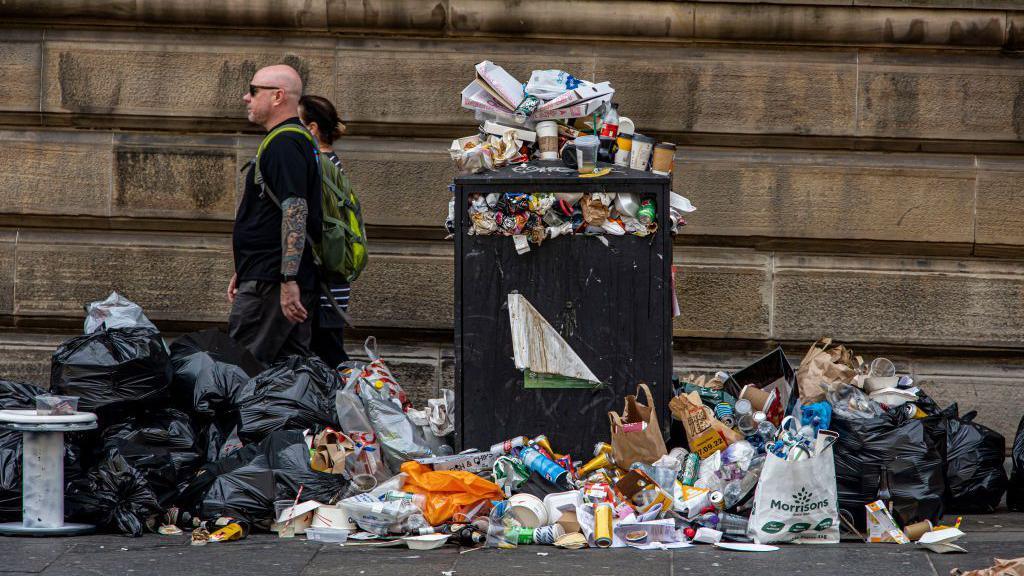Bin collectors confirm Edinburgh Festival strike
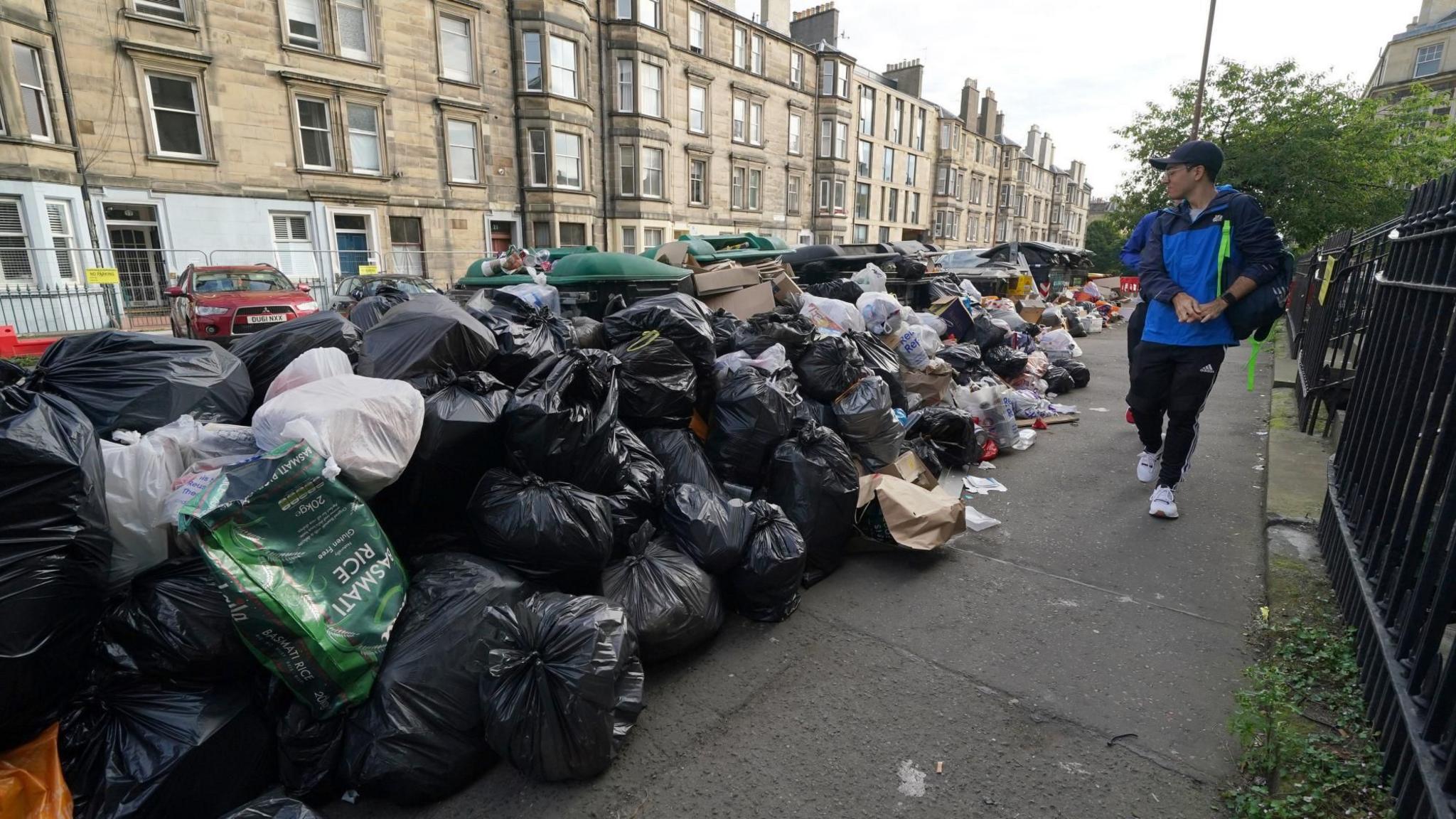
Rubbish piled up in the streets of Edinburgh during the 2022 strike
- Published
Waste and refuse workers in Scotland's capital have announced they will go on strike for eight days during the Edinburgh Festival.
GMB and Unite members in the city - and in local authorities across the country - are set to launch industrial action from 14 August after rejecting a pay deal from council body Cosla.
Unison workers had already scheduled strikes over the same period.
Of Scotland's 32 council areas, 26 are affected by the plans.
Cosla said it was committed to further talks with unions.
Scotland's largest city, Glasgow, will be among the areas impacted by the industrial action, which GMB said would mean bins are not emptied "from the smallest villages to the biggest cities".
Only six local authorities – Argyll and Bute, Na h-Eileanan an lar, Moray, Borders, Shetland and West Dunbartonshire – look set to be unaffected by strikes from at least one of GMB, Unison and Unite.
Cosla has described its offer – a blanket 3.2% pay rise for a one-year period between 1 April this year and 31 March 2025 – as "strong, fair and credible".
Keir Greenaway, GMB Scotland senior organiser in public services, said the proposal failed to match the increasing cost of living or a deal for council workers in England and Wales.
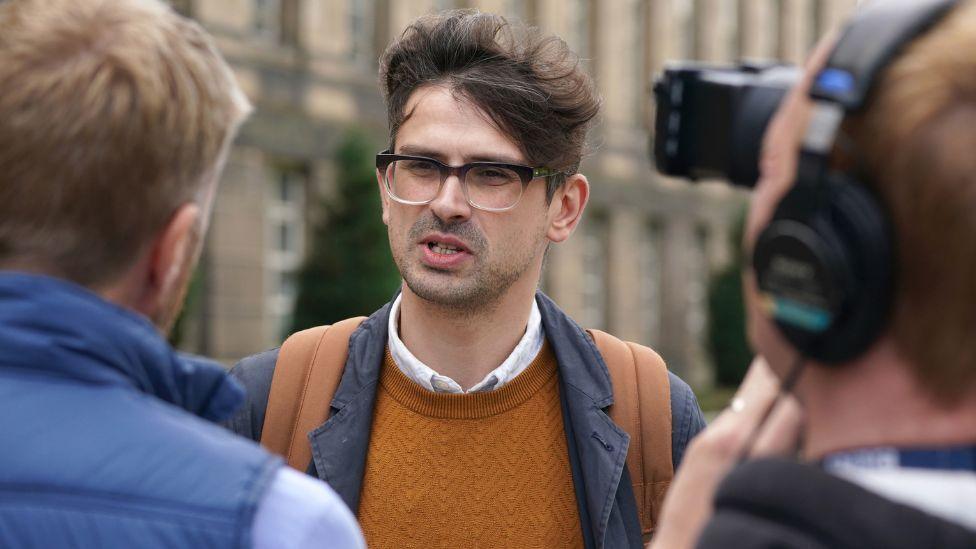
The GMB's Keir Greenaway has called for urgent action to avoid strikes
"Industrial action will start in two weeks unless ministers and local authorities identify the money needed to make an acceptable offer," he said.
"These strikes will be disruptive to all the Scots who rely on our members' work but would not be necessary if councils had shown a greater urgency and sense of realism."
Unite general secretary Sharon Graham said: "Thousands of Unite members will take strike action next month unless there is a new credible pay offer put on the table."
Unison had already confirmed strikes between 14 and 22 August, affecting 14 local authorities.
GMB members in 18 council areas backed industrial action, as did Unite members in 18 areas.
‘Turbulent financial waters’
Cosla and the Scottish government held talks with Finance Secretary Shona Robison on Tuesday.
A Cosla spokesperson said it was disappointed unions had announced strike dates "so soon after a constructive joint meeting".
They added: "Our trade union partners are aware that considerable work is being done at pace to explore all options.
"We continue to re-iterate that with no new funding in place, the 3.2% offer is the limit of affordability for councils in the current challenging financial circumstances.
"We value our workforce and are working to find a resolution as quickly as possible.”
Ms Robison said that while the strike announcement was not unexpected, it was disappointing following the "constructive and positive" talks.
The finance secretary said previously the government was facing "turbulent financial waters" but that she had asked officials to investigate "what an improved negotiating envelope may look like".
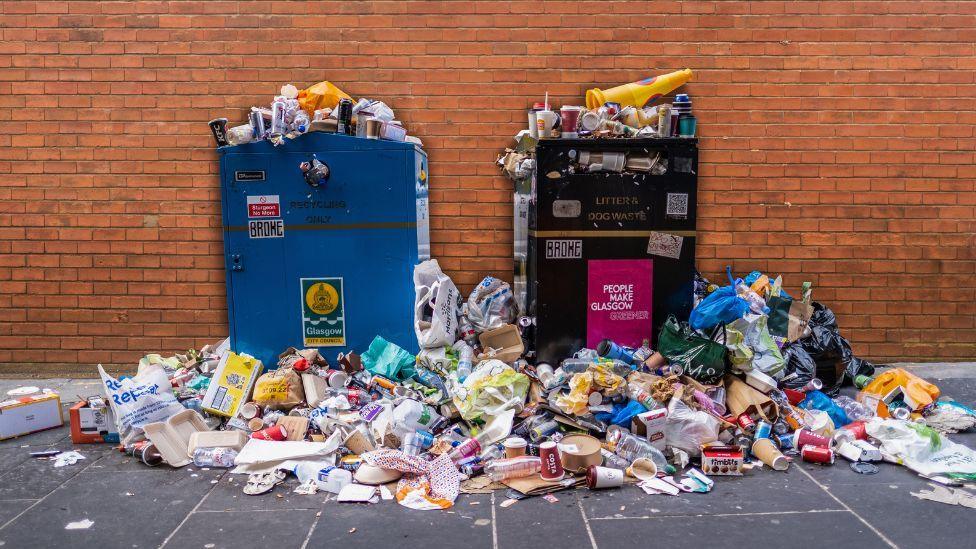
Glasgow was also affected by the 2022 bin collectors' strikes
Edinburgh City Council leader Cammy Day said: "I’m extremely concerned about the impact this will have on bin collections and street cleaning services, as well as the cleanliness of our city."
"But I want to assure residents that we'll be doing all we can to minimise any impact on essential services."
Mr Day said advice for residents and businesses on how to store waste had been published on the council website.
The proposed industrial action would affect even more council areas than strikes in 2022, when waste workers walked out in Edinburgh for 12 days during the city’s festival season, leading to mounds of rubbish littering the streets.
That was followed by similar action in Glasgow and a further 18 council areas, lasting until the end of August.
Public Health Scotland was forced to declare a health warning due to the accumulation of waste in urban areas.
An agreement was eventually reached on 2 September, but only after an intervention from then-first minister Nicola Sturgeon.
- Published30 July 2024
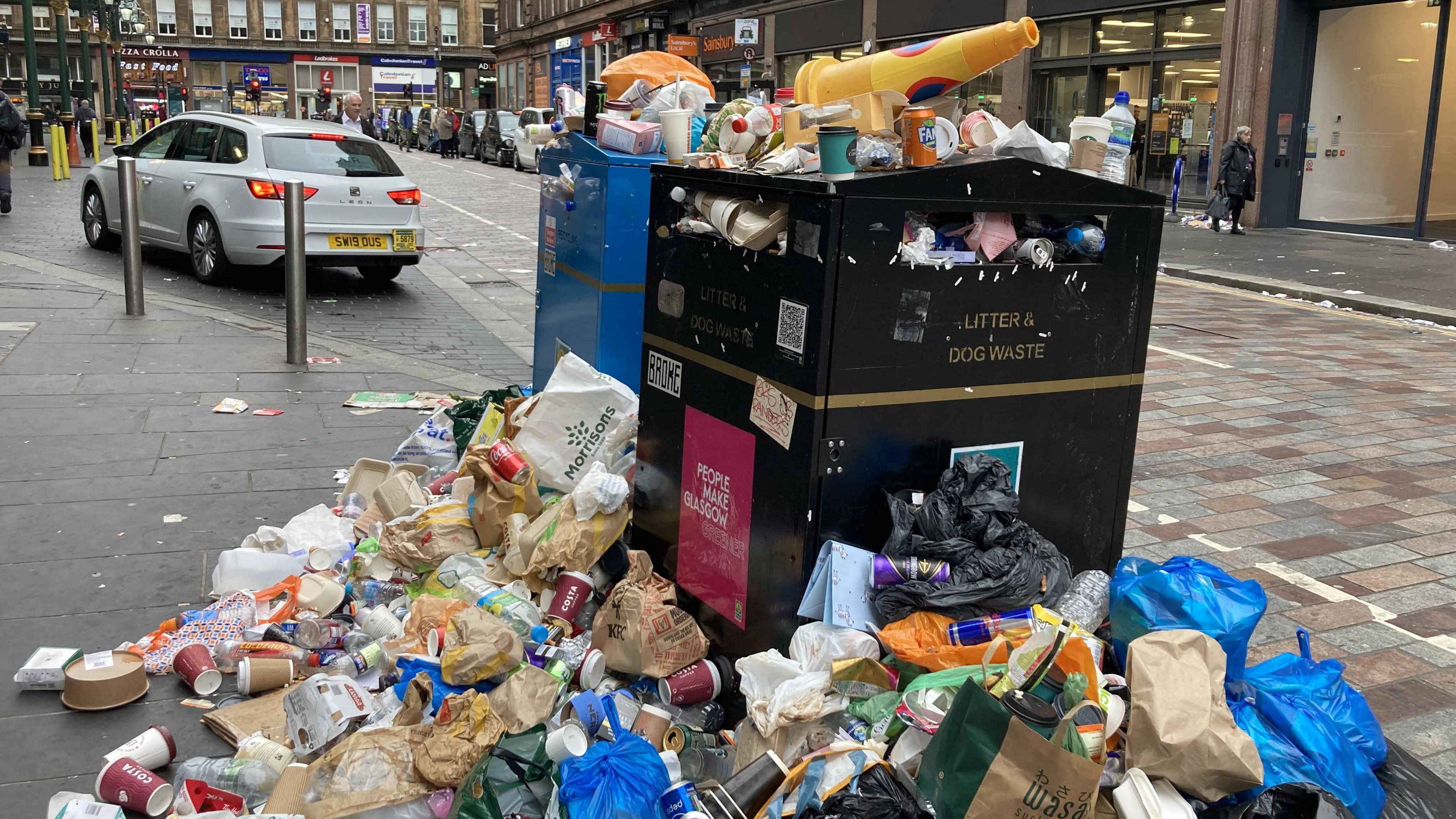
- Published1 July 2024
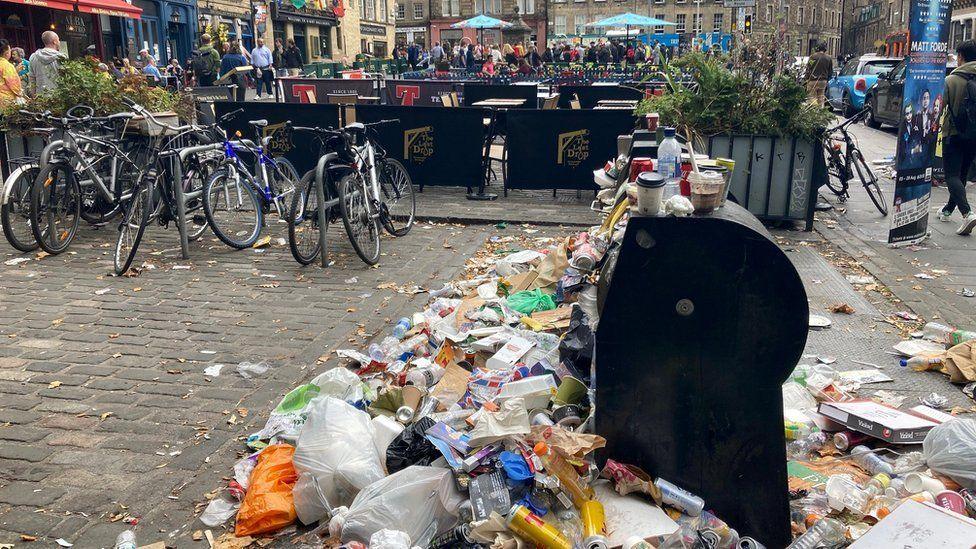
- Published19 July 2024
